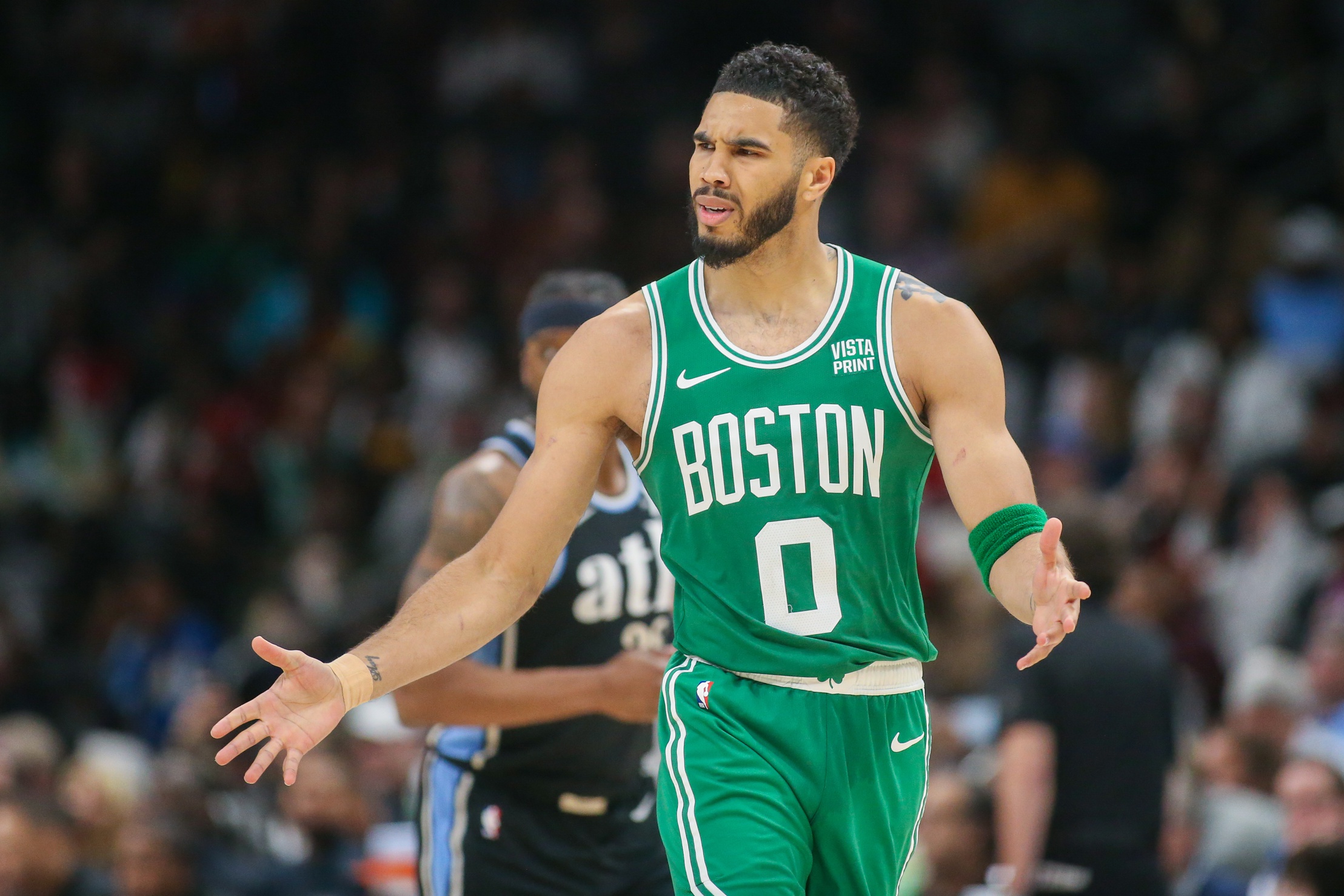The Celtics clutch time play and ability to close games have been a consistent point of criticism in an otherwise spotless year. Highlighted by an embarrassing loss to the Hawks last week where the Celtics blew a 30-point lead. This was the Celtics largest blown lead since 2000 and they became just the tenth team ever to blow a lead of 30 or more. The Celtics followed this with another loss to the Hawks later in the week.
Earlier in the month the Celtics lost a 22-point lead against the Cavs. With the playoffs just ten games away you have to wonder how serious is this problem for the Celtics. Let’s dive into the important clutch time stats and determine how severe this problem is for Boston.
— Sean Grande (@SeanGrandePBP) March 26, 2024
How Concerning Is The Celtics Clutch Time Play?
Blown Leads
Closely linked to their clutch time play one of the biggest concerns for the Celtics has been playing with a lead. However the Celtics rank dead last in blown leads, 24th in blown 4th-quarter leads, and 17th in blown double-digit leads. These numbers don’t reflect a team that struggles to play with a lead or closing games. However, these numbers also lack important context. The Celtics have the best record in the league so naturally they have fewer blown leads.
To put these numbers in a different perspective in 15 out of 16 season losses the Celtics have blown a lead. With more than half of those being 4th quarter and or double-digit leads. Ultimately while the initial numbers look promising considering the different factors at play the stats still indicate that Boston struggles playing with a lead.
Clutch Numbers
Interestingly the Celtics clutch time numbers also aren’t that different from their regular numbers. They rank sixth in clutch time offense and eighth in clutch time defense. While this is a noticeable dip from their typical first and third rankings it isn’t anything too out of the ordinary. The Celtics also rank ninth in three-point attempts in clutch time play compared to first in overall three-point attempts.
While many people point to the Celtics reliance on the deep ball as their main problem in the clutch the stats say differently. The Celtics also notably rank fourth in clutch win % and sixth in clutch points. An interesting clutch time stat is that the Celtics rank dead last in clutch time pace. This is a sizable dip from 18th overall; too many isolations are in part responsible for Boston’s slow clutch time pace.
The Stars In Clutch Time
One of the discussed parts about the Celtics clutch time play is their stars. Jayson Tatum has been widely criticized for his shot selection and clutch time play. When diving into the Celtics clutch time stats Tatum’s struggles stand out. He is shooting 36% from the field, and 33% on three-pointers with an effective field goal percentage of 41. Notably, Tatum’s usage rate in clutch time increases from 30.3 to 33.3. Furthermore, Tatum has taken 20 more clutch time shots than any other Celtic this year. This increase is inexcusable considering Tatum’s inconsistencies in the clutch.
Interesting pic.twitter.com/BuC7rxKITY
— Dan Greenberg (@StoolGreenie) March 29, 2024
Tatum’s running mate Jaylen Brown is underutilized in clutch play. Brown’s clutch time effective field percentage is 53.8 but his usage plummets from 28.7 to 21.4. Kristaps Porzingis and Derrick White are two of Boston’s most dependable clutch players, however, their usage also drops in the clutch. White’s 73 EFG % and 52 three-point % are noticeable increases from his typical 58 % EFG and 40 % from beyond the arc. However, his usage drops from 18.8 to 14.8.
Porzingis’ usage similarly drops from 25.4 to 20.3 while his production increases. Porzingis’ EFG increases from 58% to 63% in clutch time; he is also the Celtics second leading clutch time scorer. Tatum averages the most clutch time points with 2.9 Porzingis averages 2.3 but does so on .8 fewer attempts. With more attempts, Porzingis could certainly lead the team to clutch time points. Porzingis’ presence is especially helpful for the Celtics if their threes aren’t falling.
Jrue Holiday also sees a decrease in usage from 16.2 regularly to 13.8 in clutch play. The Celtics have built their identity around an everyone-eats offense. However, this is not happening in the clutch. Tatum’s involvement needs to be slightly decreased and there should be more overall balance in clutch time play. Ultimately this balance would make the Celtics far less predictable and harder to defend in the clutch.
The Last Word
Clutch time remains the top concern for the Celtics in the playoffs. Furthermore, the star numbers and offensive distribution in the clutch are extremely concerning for the Celtics. The eye test backs this up and matches these statistical concerns. The raw clutch numbers are more concerning when considering other contending teams elevate their play late in games. This includes the Nuggets and Bucks who elevate their offensive and defensive ratings in clutch time play. The Nuggets notably have the best clutch time net rating. For the Celtics to win a title and beat these top contenders their clutch time play must improve.






